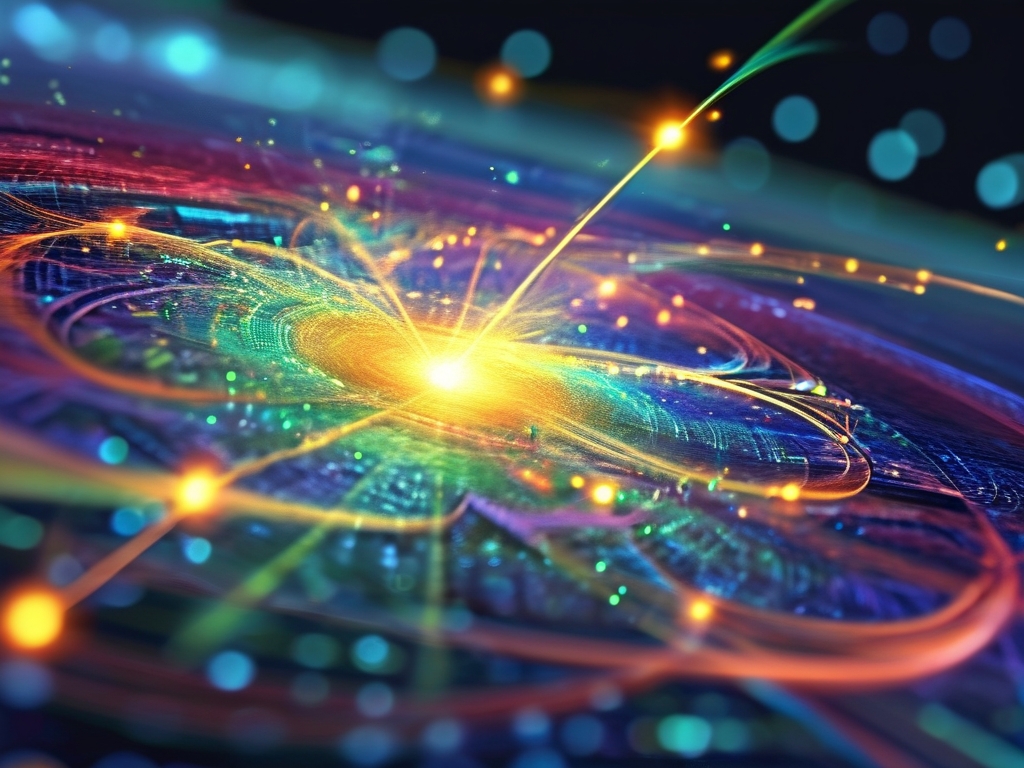The intersection of quantum theory and modern information technology represents one of the most transformative scientific partnerships of the 21st century. From the foundational principles of quantum mechanics to cutting-edge applications like quantum computing and secure communication, this relationship continues to redefine the boundaries of what is technologically possible. This article explores how quantum theory underpins modern information systems, drives innovation, and promises to solve challenges that classical computing cannot address.
Foundations of Quantum Theory in Information Technology
Quantum theory, developed in the early 20th century, introduced radical concepts such as superposition, entanglement, and quantum tunneling. These principles initially seemed disconnected from practical engineering. However, as classical computing began to approach physical limitations—such as transistor miniaturization and heat dissipation—researchers turned to quantum mechanics for solutions. The birth of quantum information science in the 1980s marked a paradigm shift, proposing that quantum states (qubits) could encode and process information in ways binary bits never could.
Quantum Computing: Beyond Classical Limits
Modern information technology relies on silicon-based semiconductors, but Moore’s Law—the observation that transistor density doubles every two years—is nearing its end. Quantum computing, leveraging superposition and entanglement, offers exponential computational power. For example:
- Shor’s Algorithm: A quantum method for factoring large numbers, threatening classical encryption (e.g., RSA) while enabling breakthroughs in cryptography.
- Grover’s Algorithm: Accelerates unstructured search problems, revolutionizing data analysis and artificial intelligence.
Companies like IBM, Google, and startups such as Rigetti are racing to build scalable quantum processors. In 2019, Google claimed "quantum supremacy" by solving a problem in 200 seconds that would take a supercomputer 10,000 years.
Quantum Communication and Unhackable Networks
Quantum theory also enables ultra-secure communication. Quantum key distribution (QKD), based on the no-cloning theorem, ensures that any eavesdropping attempt disrupts the quantum state, alerting users. China’s Micius satellite, launched in 2016, demonstrated intercontinental QKD, paving the way for a global quantum internet. Such networks could protect financial transactions, military communications, and healthcare data from cyber threats.
Quantum Sensors and Precision Technology
Beyond computing, quantum theory enhances sensing technologies. Atomic clocks using quantum interference govern GPS systems with nanosecond precision. Quantum sensors detect gravitational waves (LIGO) and enable MRI advancements. These innovations rely on measuring quantum states to achieve unprecedented accuracy, benefiting industries from navigation to medical diagnostics.

Challenges and Ethical Considerations
Despite its potential, quantum technology faces hurdles:
- Qubit Stability: Quantum states are fragile, requiring near-absolute-zero temperatures and isolation from noise.
- Scalability: Current quantum computers operate with <100 qubits; solving real-world problems demands millions.
- Ethical Risks: Quantum decryption could undermine existing security infrastructure, necessitating preemptive upgrades to post-quantum cryptography.
The Future: A Quantum-Integrated World
The synergy between quantum theory and information technology is accelerating. Governments and corporations are investing billions: the EU’s Quantum Flagship, the U.S. National Quantum Initiative, and China’s quantum megaprojects highlight its strategic importance. Future applications may include:
- Quantum Machine Learning: Enhancing AI with quantum pattern recognition.
- Material Science: Simulating molecular structures for drug discovery.
- Energy Optimization: Solving complex logistics for renewable energy grids.
Quantum theory is no longer an abstract field of physics—it is the backbone of tomorrow’s information technology. By harnessing quantum phenomena, humanity stands on the brink of solving problems once deemed intractable. As research progresses, collaboration between physicists, engineers, and policymakers will be essential to navigate this revolution responsibly. The quantum era is not coming; it is already here, reshaping our digital world one qubit at a time.



